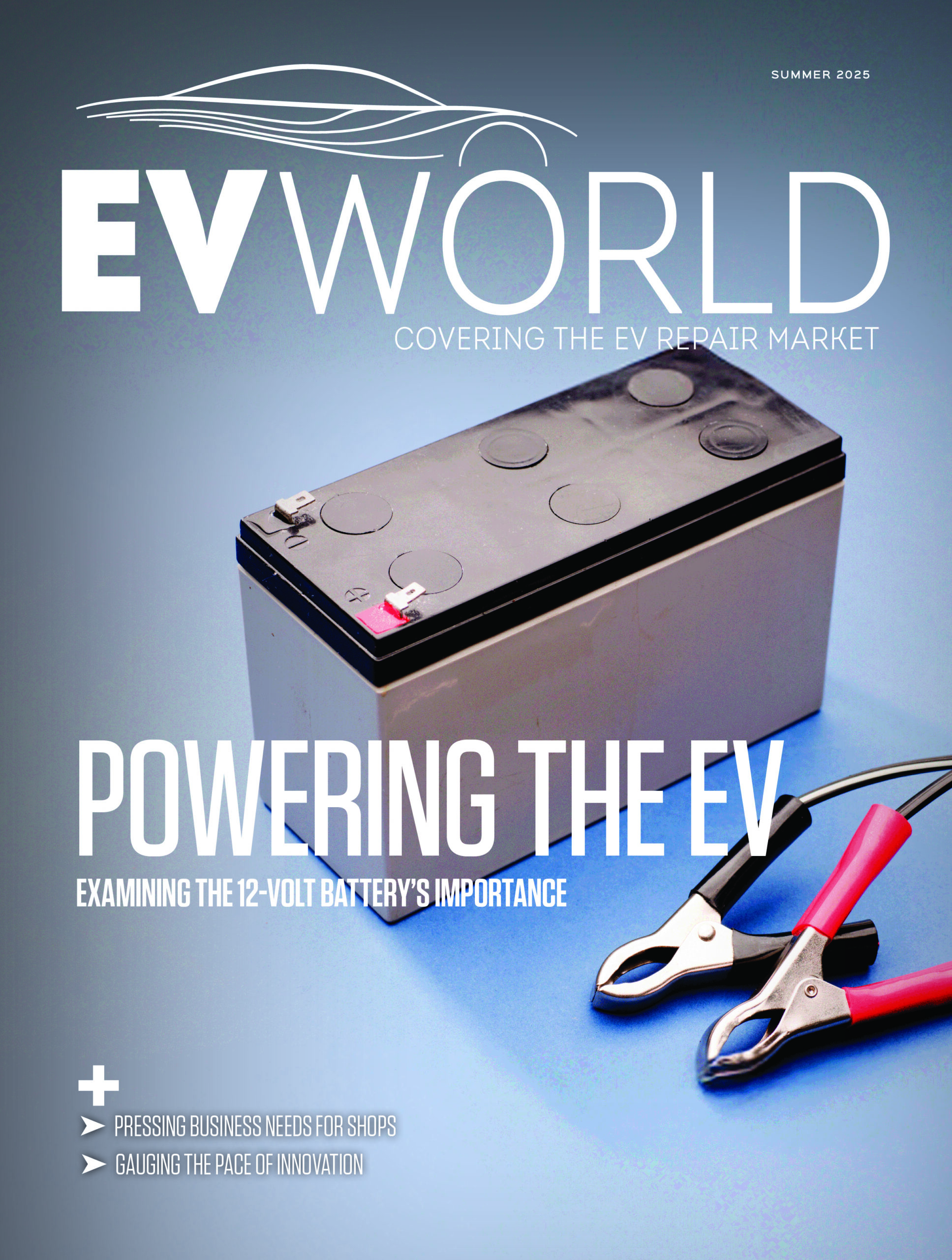
There’s hesitancy around used electric vehicles in Canada but it’s important to have a strong second-hand market
As Canada continues to embrace electric vehicles (EVs) as a critical part of its transition to a greener future, the conversation often revolves around brand new EVs. However, the used EV market is an equally vital piece of the puzzle.
While there’s enthusiasm for EVs overall, many Canadians remain hesitant to buy pre-owned versions. This reluctance stems from concerns about vehicle battery replacement, limited awareness of EV technology and range anxiety, concerns about recycling of EVs and inconsistent access to charging infrastructure.
Developing a robust used EV market is crucial to ensuring widespread adoption and achieving Canada’s climate goals.
A 2023 survey by KPMG found that nearly 60 per cent of Canadians expressed concerns about EV battery degradation over time, fearing diminished range and costly replacements. While EV batteries are designed to last for hundreds of thousands of kilometers, their performance can vary based on factors such as charging habits, environmental conditions and the vehicle model.
Although it’s true that the high voltage battery is the most expensive component of an electric vehicle, often representing 30 per cent to 50 per cent of its total cost, vehicle manufacturers have established excellent transferrable warranties.
Like any new vehicle, there will be some with early replacement just like a conventional ICE or driveline. In the Spring issue of EV World, I described a recent battery replacement in my 2016 Kia Soul EV. My vehicle was purchased as a used vehicle with under 85,000 km. When my battery failed it was covered completely by warranty. My vehicle now has more than 145 km range which is comparable to when new.
“Although the hesitancy of Canadians to purchase used electric vehicles is rooted in legitimate concerns, these challenges are surmountable.”
Unfortunately, many Canadians are also unfamiliar with EV technology or how the range of a vehicle may fit their lifestyle and needs. A 2022 report by the Canadian Automobile Association (CAA) revealed that 44 per cent of Canadians felt they lacked sufficient knowledge about EVs to consider purchasing one.
For instance, older EV models may not support the latest fast-charging standards or have the same range capabilities as newer models. However, according to Statistics Canada, the average one-way commute in Canada is 22.8 km, which is well within the range of most EVs, even first-generation.
These perceived drawbacks can deter buyers who are unsure about how these limitations align with their lifestyle.
This knowledge gap is even more pronounced in the used market, where potential buyers may feel less confident navigating warranties, maintenance needs and compatibility with newer charging networks.
EVs have the potential to last longer than ICE vehicles, primarily due to their simpler mechanical design and reduced wear-and-tear on critical components. With proper care, modern EVs can surpass the lifespans of many ICE vehicles.
We are also concerned about what happens to our vehicles once they are no longer on the road. However, Canada is at the forefront of recycling EV batteries, with several companies and organizations actively involved. These companies are developing innovative methods to recover valuable materials like lithium, cobalt, nickel and manganese from used batteries.
Here several companies working in the area
■ Li-Cycle, located in Mississauga, Ontario, uses a hydrometallurgical process to recycle lithium-ion batteries, achieving high recovery rates of up to 95 per cent for materials like lithium, nickel and cobalt. They have recently expanded their operations across North America and launched a new hub in Kingston, Ontario.
■ Retriev Technologies in Trail, British Columbia, offers end-to-end battery management services, including recycling lithium-ion batteries and safe disposal.
■ RecycLiCo Battery Materials, located in Surrey, British Columbia, offers closed-loop recycling using their proprietary RecycLiCo process, which is environmentally friendly and designed to recover up to 100 per cent of critical materials from EV batteries.
■ Electra Battery Materials Corporation in Temiskaming Shores, Ontario, is developing an integrated recycling and refining complex for EV batteries, with a focus on recovering cobalt, nickel and lithium.
■ Loop Industries in Montreal, Quebec, recycles plastic from EV battery casings, loop complements the EV ecosystem by managing non-metal components.
■ In addition, the National Research Council (NRC) and universities like the University of Toronto and McGill are contributing to research and development in EV battery recycling in combination with government programs, like the Zero Emission Vehicle Infrastructure Program (ZEVIP).

Finally, we are still faced with a charging infrastructure that is insufficient in some regions to fully support EV adoption in Canada, especially outside major urban centers. The Canadian Infrastructure Bank reported in 2023 that while the number of public chargers had grown by 25 per cent in the past two years, gaps still exist in rural and remote areas.
Used EVs, which often have shorter ranges than newer models, may exacerbate these concerns. Without a reliable and widely accessible charging network, buyers may be reluctant to invest in vehicles that could limit their travel options. Luckily, his can often be addressed by assessing daily driving habits.
The good news from all this is there is progress being made on all fronts because a strong used EV market is important as we go forward. New EVs remain out of reach for many Canadians due to their high upfront costs.
According to Statistics Canada, the average price of a new EV in 2023 was over $60,000, significantly higher than the average cost of a new internal combustion engine vehicle. A thriving used EV market bridges this affordability gap, making EV ownership accessible to a broader demographic. This is especially important as Canada aims to phase out sales of new gasoline-powered vehicles by 2035 and transition entirely to zero-emission vehicles.
Second-hand markets play a critical role in familiarizing consumers with new technologies, as seen historically with hybrids and other vehicle innovations. A well-functioning used EV market supports the residual value of EVs, making them a more attractive option for new buyers and can serve as a stepping stone, allowing hesitant buyers to test the waters of electric mobility at a lower financial risk.
There are things we can still do though to address hesitancy and strengthen the used EV market. Canada must take proactive measures including a standardized system for evaluating and certifying the health of EV batteries, continuing to invest in charging infrastructure, particularly in rural and underserved areas, public education campaigns focusing on the benefits and practicality of used EVs and extending federal and provincial incentives to include the purchase of used EVs. Manufacturers should continue to support older technology and maintain effective warranty options for new vehicles.
Although the hesitancy of Canadians to purchase used electric vehicles is rooted in legitimate concerns, these challenges are surmountable. A thriving used EV market is a cornerstone of Canada’s transition to a sustainable transportation system. By addressing barriers through policy, education, and infrastructure investment, Canada can unlock the full potential of electric transportation.
David Mayers is chief executive officer at Environmental Motorworks, an innovative services company centred on providing hands-on EV and hybrid training to technicians and fleet operators in the automotive and heavy equipment sectors.












Leave a Reply